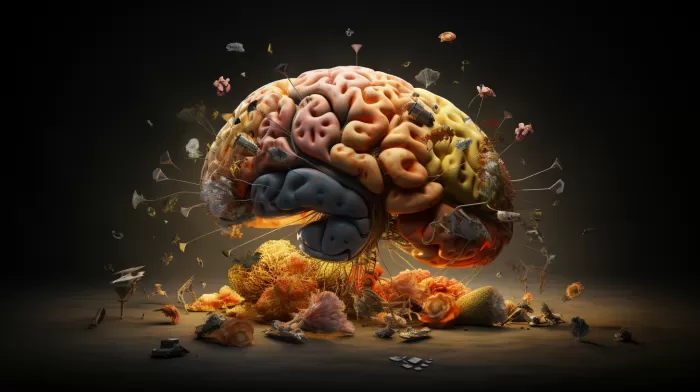Sleep is essential for our well-being, and without it, our brains can fill with toxic waste. When we don’t get enough sleep, we experience exhaustion, difficulty thinking and remembering, as well as muscular and motor issues. Over time, insufficient sleep may lead to increased risk of migraines, fibromyalgia, autoimmune issues, obesity, and heart disease.
The Sleep Detox
During sleep, our body repairs cellular damage and replenishes necessary hormones while metabolizing harmful stress hormones. Research led by Maiken Nedargarrd, M.D., and his group at the University of Rochester Medical Center (URMC) found that during sleep, the brain detoxes and protects us from Alzheimer’s disease and dementia.
Using two-photon microscopy, a new imaging technology, the researchers discovered how the brain mops up waste products and removes them during sleep, showing that the brain functions differently at night versus during the day. The brain’s glymphatic system works as a waste-draining process that is ten times more active during sleep than waking hours. This system cleanses and removes amyloid-beta waste proteins from the brain. During sleep, cerebrospinal fluid flows in the gaps between neurons, allowing waste proteins to be flushed into the circulatory system and out of the body.
If the brain is not detoxed, these proteins can become plaques that contribute to the onset of Alzheimer’s and dementia. Sleep is critical for this “active clearance of the by-products of neural activity.” People with insomnia, sleep apnea, and dream-disturbed sleep do not achieve the same level of brain detoxing as those who sleep soundly throughout the night.
Insomnia Tips
Insomnia can be caused by various factors, including a racing mind or too much energy. To help cope with insomnia, try the following tips:
- Avoid caffeine consumption after 4 p.m.
- Don’t consume sugar or sports drinks after 4 p.m.
- Do not exercise late at night, as this can energize the body and disrupt sleep.
- Drink plenty of water to clear toxin and waste products.
- Treat your bedroom as a sleep sanctuary with cozy blankets and a quiet, dark atmosphere.
- Avoid watching TV or reading in bed or right before bedtime, as this can overstimulate the brain.
- Write down any thoughts or tasks that come to mind before bed, allowing you to forget them until morning.
- Practice autohypnosis, progressive relaxation, and/or mindful meditation to help relax and quiet the mind.
- Consider supplementation, such as melatonin, to relax the body into sleep.
Sleep Apnea Tips
Sleep apnea not only prevents deep, continuous sleep but also obstructs or delays full breaths, affecting oxygen intake and various body systems. To combat sleep apnea, try these tips:
- Explore devices like mouth guards and chin straps, available online.
- Have a sleep study performed to determine the severity of your apnea and follow medical recommendations.
- Try side-sleeping postures to prevent the throat from closing or the tongue from dropping back and blocking airways.
- Quit smoking.
- Lose weight, as sleep apnea is correlated with being overweight or obese.
- Consume less salt and consider taking a diuretic (water pill) to reduce fluid retention that can interfere with breathing while lying down.
Sleep is crucial for the health, well-being, and long-term wellness of your brain and mind. Alter your schedule, change your habits, and take necessary steps to ensure consistent, adequate sleep to reduce the risk of Alzheimer’s and dementia and other health issues like obesity.



